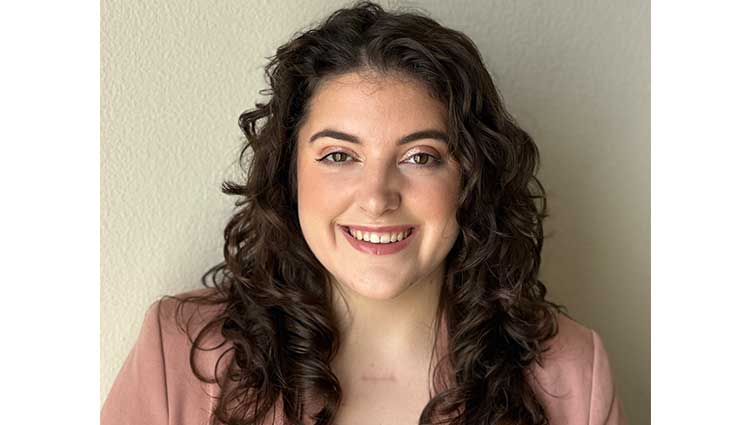
Dissertation Summary Submitted by Brittany Leibowitz
Summary
Cancer in adolescents and young adults (AYAs) is defined by the National Cancer Institute (2019) as diagnoses occurring among those aged 15 to 39 years and is unique from cancer diagnosed in other age groups because of important differences in the distribution of cancer types, intrinsic and extrinsic risk factors, tumor biology, and prognosis and survivorship (Miller et al., 2020). Research has found the most vulnerable period for survivors occurs during the transition from active to posttreatment, which is generally in the first year of survivorship. The research questions aimed to understand how these individuals have been able to make meaning of their experience of being in remission from cancer. Some of the main areas of interest were what their support system looks like, if they had ever engaged in any programming opportunities, and their sense of resiliency post-treatment. The current study focused on young adults ranging from 18 to 30 years of age that have been diagnosed with Lymphoma and are currently in remission. The method of this research was a narrative qualitative study and uses a resiliency framework model. In following traditional narrative studies, there were five participants sampled broadly from the United States and Canada during the COVID-19 pandemic. The primary means of data collection were obtained from interviews, followed by an analysis of first-cycle coding via NVivo. The significance of this study was to transcend quantitative hypothesis testing about symptoms, risk factors, and psychological traits and to focus on giving voice to the unique narratives told by Lymphoma survivors and how they move toward resiliency and their personal meaning making processes. The findings suggested the complex and nuanced nature of re- integration into society post-treatment. Additionally, it supported the need for psychosocial intervention from medical providers and oncology treatment centers.
Results
The findings displayed several key components of survivor’s own sense of resiliency and meaning making.
- The results were coded based on in-vivo, emotions, values, and process themes.
- Common threads amongst the participants showed shared values for community, health, autonomy, and altruism.
- Additionally, emotional expression was shared by conveying feelings of distress, tearfulness, humor, and gratitude.
- Overall, resiliency and re- integration are fundamentally complex and can change over-time.
- There is immense value and significance in listening to survivor’s perspectives on areas that would promote better mental health outcomes post-treatment.
- There are many opportunities to develop more inclusive AYA programming across oncology centers to help mitigate the feelings of isolation experienced by this community.
- A majority of the collected narratives demonstrated an appreciation and admiration for life in a new way. Although a couple of participants disclosed the difficult emotional labor and trauma, there is still evidence to support a strong sense of resiliency from cancer survivors.
Implications
- This study compared to similar research (Hauken et al. 2019) found how little attention has been given to young adult cancer patients (YACP) and their experiences from the process of being diagnosed with cancer.
- This study along with prior research conveys the critical nature of informing healthcare providers to facilitate suitable information and psychosocial support and to promote
- This research highlights the need to raise awareness of cancer in young adulthood in the public and in the primary healthcare system, such as shortening the diagnosis process, clarifying responsibility for age- related information, and providing psychosocial follow-up during the diagnosis process.
- Although the current research study focuses on post-treatment, the findings give credence to the importance of mental health care throughout the treatment process to help mitigate some of the experienced psychosocial distress.
- An earlier study referenced in my dissertation found that participants indicated a major shortcoming in both preparation for survivorship, multidisciplinary follow-ups, and knowledge which was consistent with my findings as well
- A shift to a more holistic perspective in survivorship care is suggested.
- Smith (2015) found how depression remains an under-recognized comorbidity in cancer patients, with major implications on patient suffering, mortality, and healthcare expenditure. These results were also supported in my study.
- The current study and additional research referenced in my dissertation emphasized how depression in cancer is significantly different from depression in healthy individuals and involves a unique symptomatology and a strong biological etiology.
- Additional research by Yi and Syrjala (2017) found anxiety and fear are more common than depression, with females, adolescents and young adults and those who receive intensive treatment being the most vulnerable for mental illness.
- The stories shared by each participant will be available to much broader audiences
- The goal of this research is to help inform healthcare professionals by sharing these narratives and allowing a deeper insight into the moments of uncertainty and isolation. By including the emotionality component earlier on in the treatment process, it can help to build resiliency and lessen the overwhelming burden of life post-treatment.
Share Your Dissertation Findings With the National Register
For student members of the National Register Associate Program, we are excited to offer you the opportunity to share your dissertation on the National Register’s website. Understanding the work and dedication that goes into your dissertation, we believe it deserves a broad audience.
If you are interested in sharing your work with us, please click the button below to complete a short form. We are eager to provide a platform where your research can be seen and appreciated by a wider audience.






